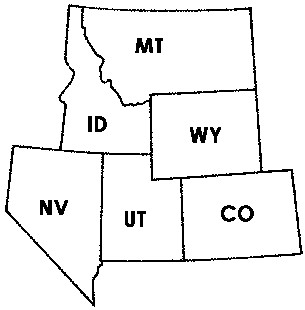Use an indirect proof to complete the following problem.Given:  and
and  are supplementary (no drawing)Prove:
are supplementary (no drawing)Prove:  and
and  are not both obtuse angles.
are not both obtuse angles.
What will be an ideal response?
 and
and  are both obtuse angles. Then
are both obtuse angles. Then  and
and  .
.It follows that 



With a contradiction of the known fact, it follows that the supposition must be false; thus, 

You might also like to view...
Solve the problem.The following map shows the states Idaho, Montana, Wyoming, Colorado, Utah, and Nevada. Find a route that starts and ends in Colorado and crosses each common state border exactly one time.
A. No such route exists. B. CO ? UT ? NV ? ID ? MT ? WY ? ID ? UT ? WY ? CO C. CO ?WY ? MT ? ID ? NV ? UT ? CO D. CO ?WY ? ID ? MT ? WY ? ID ? UT ? CO
Find a polynomial function of lowest degree with rational coefficients that has the given numbers as some of its zeros.-6i, 
A. f(x) = x4 - 29x2 - 252 B. f(x) = x4 + 29x2 - 252 C. f(x) = x4 - 58x2 + 252 D. f(x) = x4 + 58x2 + 252
Write the fraction in lowest terms. Use the method of dividing by a common factor.- 
A. - 
B. - 
C. - 
D. - 
Divide. Assume all variables are nonzero.
A. 
B. 
C. 
D. x3y5